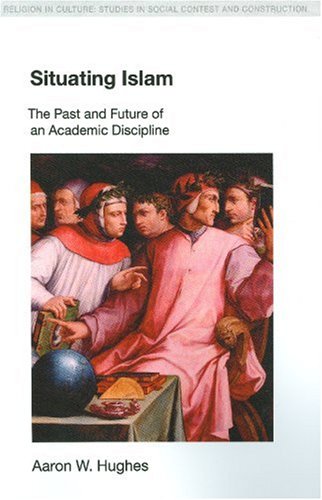Aaron Hughes (University of Rochester) has been a vocal critic of some of the theories and methods used by religious studies scholars working on Islam. In this podcast, he discusses his critique of the discipline and practice of religious studies he has made through works such as Situating Islam (Equinox, 2008), Theorizing Islam (Equinox, 2012), Abrahamic Religions (Oxford, 2012), The Study of Judaism (SUNY, 2013), and, most recently, Islam and the Tyranny of Authenticity (Equinox, 2015).
This sustained focus on the field of religious studies is not only a concern with identity–the political boundaries of the field as established by its scholars and 
Podcast: Play in new window | Download | Embed
Subscribe: RSS
Listeners might also be interested in our previous podcasts on Religion as Sui Generis, The Relationship between Theology and Religious Studies, Teaching and Learning in Contemporary Religious Studies, The Critical Study of Religion, and Biblical Studies and Religious Studies. You can download this interview, and subscribe to receive our weekly podcast, on iTunes. If you enjoyed it, please take a moment to rate us . And remember, you can use our Amazon.co.uk, Amazon.com, or Amazon.ca links to support us at no additional cost when buying academic texts, storage boxes, tiny shoes and more.












